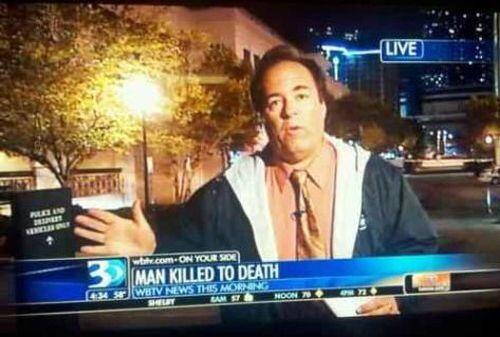We’ve all heard the arguments from the gun manufacturers lobby: “The
2nd Amendment was about freedom!” “The 2nd Amendment was to ensure that
men could stand against their government” or other similarly absurd
thoughts. But, what did the Founding Fathers think of the 2nd Amendment?
It turns out, thanks to research done by
Thom Hartmann, the 2nd Amendment was about slavery.
What is ignored in the NRA’s arguments is that, at the time the U.S.
Constitution was written, the militia in the south was known by another
name: the
slave patrol, and virtually all men of age served in its ranks at one point or another. As far back as
1680 in Virginia, the militias were organized to prevent:
“…the frequent meetings of considerable numbers of negroe
slaves, under pretence of feasts and burialls is judged [to be] of
dangerous consequence.” (sic)
In other words, the Virginia Militia was tasked with breaking up
slave rebellions by busting any slave who might be organizing one. It
even gave ‘incentive’ to men to serve on the militia: any freed colored
person (black, Native American, or any other), if caught fleeing by the
Militiaman, would be turned over to them as property, enslaved. A very
effective incentive in colonial Virginia.
By 1755, the Militia was established not only as a foundation to
enforce slavery in the south, but it was a structure which it could be
expanded if need be. Countless records of captured free people of color,
even people such as the
Irish, were pressed as slaves under the system.
With the ratification of the U.S. Constitution, there was concern
among slave holders that their militias, their slave patrols, would be
usurped by the new federal government using the provisions outlined in
Article 1, Section 8. Patrick Henry in particular was quite vocal on the
subject, saying:
Let me here call your attention to that part [Article 1,
Section 8 of the proposed Constitution] which gives the Congress power
to provide for organizing, arming, and disciplining the militia, and for
governing such part of them as may be employed in the service of the
United States. . .
By this, sir, you see that their control over our last and best
defence is unlimited. If they neglect or refuse to discipline or arm our
militia, they will be useless: the states can do neither . . . this
power being exclusively given to Congress. The power of appointing
officers over men not disciplined or armed is ridiculous; so that this
pretended little remains of power left to the states may, at the
pleasure of Congress, be rendered nugatory. [Source]
He also is quoted as saying:
If the country be invaded, a state may go to war, but
cannot suppress [slave] insurrections. If there should happen an
insurrection of slaves, the country cannot be said to be invaded. They
cannot, therefore, suppress it without the interposition of Congress . .
. . Congress, and Congress only, can call forth the militia. [Source]
He was not alone either, with George Mason joining him in concern:
The militia may be here destroyed by that method which
has been practised in other parts of the world before; that is, by
rendering them useless, by disarming them. Under various pretences,
Congress may neglect to provide for arming and disciplining the militia;
and the state governments cannot do it, for Congress has an exclusive
right to arm them. [Source]
In other words, the U.S. Congress could disarm the patrols needed to
keep slaves in line, eliminating slavery with one bold and quick move
overnight. The 2nd Amendment itself was purposefully designed to empower
the states to manage and handle their slave patrols, their militias.
Which is why when Thomas Jefferson had James Madison draft up the 2nd
Amendment, he had the language changed, from this:
The right of the people to keep and bear arms shall not
be infringed; a well armed, and well regulated militia being the best
security of a free country: but no person religiously scrupulous of
bearing arms, shall be compelled to render military service in person.
To the language we know today:
A well regulated Militia, being necessary to the security
of a free State, the right of the people to keep and bear Arms, shall
not be infringed. [Source]
A serious redesign, would you not say? The focus shift from a civil,
non-conscripted force to a state-regulated entity which can be
conscripted into service fit the needs of the slave holders. In a stroke
of irony, when Abraham Lincoln did free the slaves, he used the very
power which Patrick Henry and George Mason feared the government would,
only at that time, by the Confederate states acting in revolt, they had
abandoned their voting positions within the United States and therefore
were unable to block the legislation. Their petty revolt resulted in
their institution of slavery being wiped away. It still was a bloody
civil war, but their “right to bear arms” destroyed what they had hoped
to preserve.
When people call themselves patriots, or say they’re standing for
what the founding fathers stood for when it comes to the 2nd Amendment,
they are, in fact, doing nothing of the sort. Unless, of course, they’re
arguing for the right to press people into involuntary,
lifetime-indentured servitude, passed from parent to child in
perpetuity. Or perhaps, that was, in fact,
the plan all along.
SOURCE:
Nathaniel Downes; AddictingInfo















 Ram
Bahadur Bomjon, also known as “Buddha Boy” attracted thousands of
visitors and media attention when he began his mysterious meditation
without food and water on 16 May 2005.
Ram
Bahadur Bomjon, also known as “Buddha Boy” attracted thousands of
visitors and media attention when he began his mysterious meditation
without food and water on 16 May 2005. 




